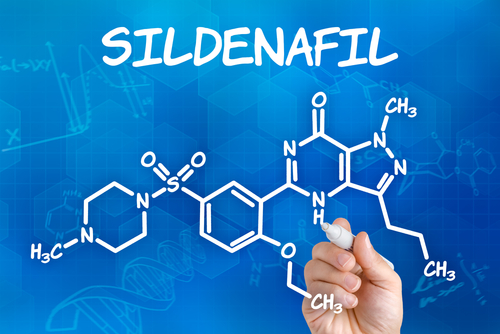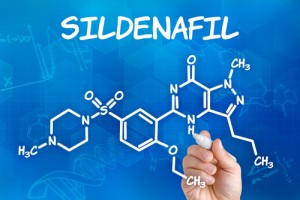Sildenafil-Treated PAH, Scleroderma Patient Shows Remarkable Improvements

 Clinical application of sildenafil, a phosphodiesterase inhibitor studied for efficacy in treating pulmonary hypertension, to a patient with systemic sclerosis gave meaningful data that support results of basic laboratory research on sildenafil. The patient, a 40 year old female with diffuse cutaneous systemic sclerosis, showed remarkable improvement in her pulmonary arterial hypertension following daily treatment with sildenafil.
Clinical application of sildenafil, a phosphodiesterase inhibitor studied for efficacy in treating pulmonary hypertension, to a patient with systemic sclerosis gave meaningful data that support results of basic laboratory research on sildenafil. The patient, a 40 year old female with diffuse cutaneous systemic sclerosis, showed remarkable improvement in her pulmonary arterial hypertension following daily treatment with sildenafil.
As described in “Potential Effect of Sildenafil Beyond Pulmonary Hypertension in a Patient with Diffuse Systemic Sclerosis and Cryoglobulinemic Vasculitis,” the admitted patient had pulmonary hypertension associated with diffuse cutaneous systemic sclerosis. Her pulmonary function tests were deteriorating, and she had a right ventricular systolic pressure of 60 mmHg. Systemic sclerosis had led her to develop cryoglobulinemia, a condition in which proteins thicken and block blood vessels.
[adrotate group=”4″]
To combat this combination of symptoms, the patient was treated with 50 mg/day of sildenafil until she showed signs of improvement in skin tightness. Remarkably, her right ventricular systolic pressure decreased to 34 mmHg, which improved her pulmonary arterial hypertension.
This case study adds to a previous report of a patient with small vessel vasculitis and Takayasu arteritis. In both studies, sildenafil was credited with enhancing vasodilation and inhibiting over proliferation of cells that can thicken vessel walls. These two successes led the authors to conclude that sildenafil ought to be further exploited for the treatment of patients with pulmonary arterial hypertension associated with scleroderma.
[adrotate group=”3″]







